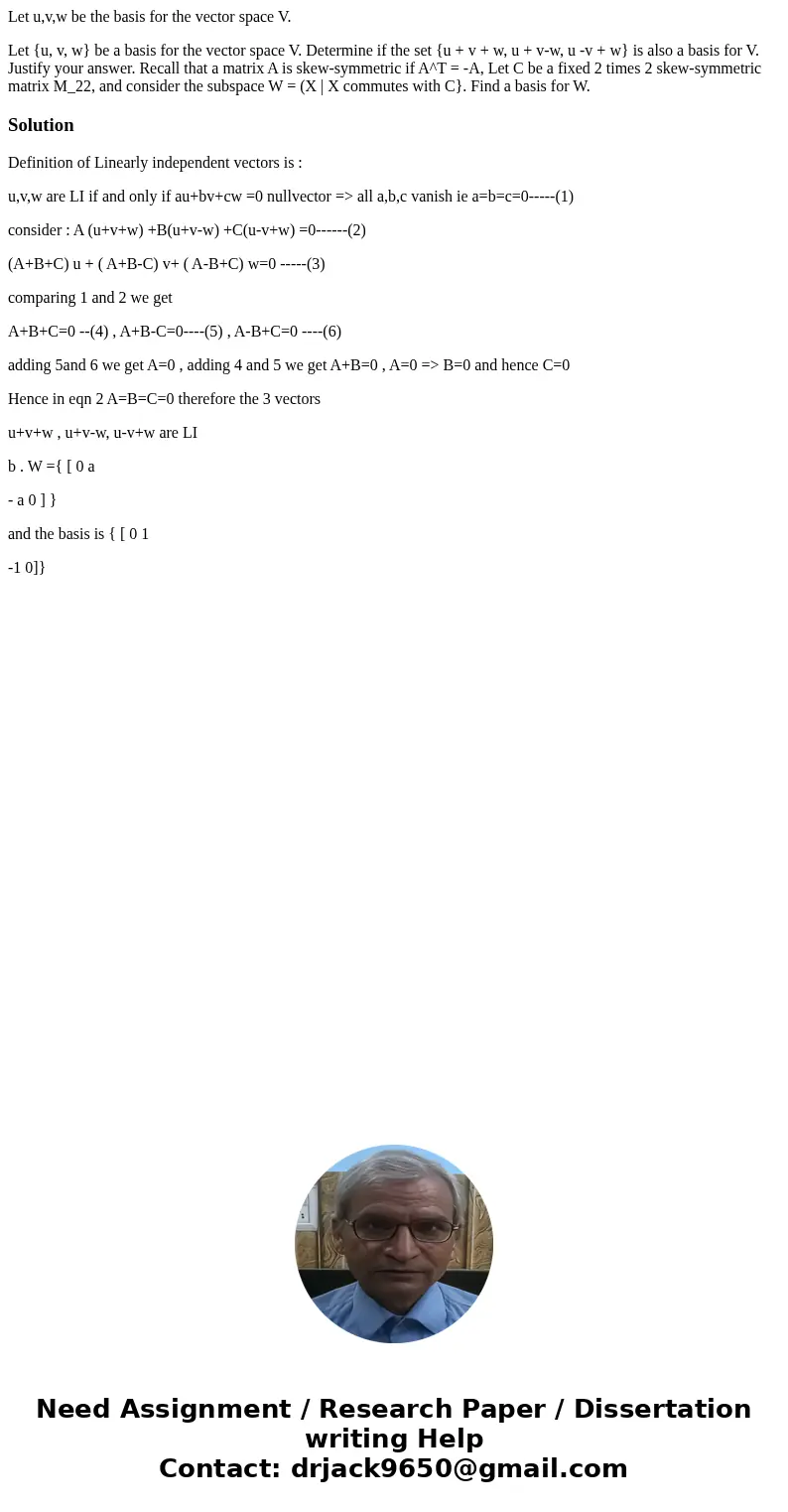Let uvw be the basis for the vector space V Let u v w be a b
Let u,v,w be the basis for the vector space V.
Let {u, v, w} be a basis for the vector space V. Determine if the set {u + v + w, u + v-w, u -v + w} is also a basis for V. Justify your answer. Recall that a matrix A is skew-symmetric if A^T = -A, Let C be a fixed 2 times 2 skew-symmetric matrix M_22, and consider the subspace W = (X | X commutes with C}. Find a basis for W.Solution
Definition of Linearly independent vectors is :
u,v,w are LI if and only if au+bv+cw =0 nullvector => all a,b,c vanish ie a=b=c=0-----(1)
consider : A (u+v+w) +B(u+v-w) +C(u-v+w) =0------(2)
(A+B+C) u + ( A+B-C) v+ ( A-B+C) w=0 -----(3)
comparing 1 and 2 we get
A+B+C=0 --(4) , A+B-C=0----(5) , A-B+C=0 ----(6)
adding 5and 6 we get A=0 , adding 4 and 5 we get A+B=0 , A=0 => B=0 and hence C=0
Hence in eqn 2 A=B=C=0 therefore the 3 vectors
u+v+w , u+v-w, u-v+w are LI
b . W ={ [ 0 a
- a 0 ] }
and the basis is { [ 0 1
-1 0]}

 Homework Sourse
Homework Sourse